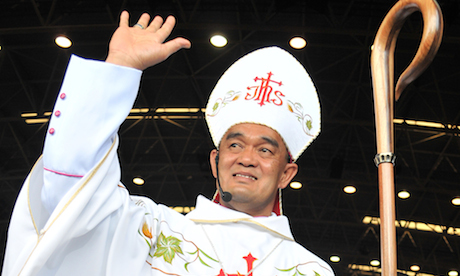Archbishop Peter Loy Chong continues to maintain that as a theologian, he could not compromise on his belief that religion was a public matter.
He made a distinction between the idea of a secular state and the idea that religion is private.
“We do not have a problem with Fiji being called a secular state,” he said
“The biggest issue here is we look at it from a theological point of view while others look at it from a legalistic point of view.”
Chong said he would encourage his flock to continue discussions on this provision in the Constitution and he hoped the government would hold more dialogue on the issue.
Reverend James Bhagwan, secretary for communication for the Methodist Church, said the issue lay in the definition of a secular state in the Constitution.
He said this meant the church must speak the truth, in love, and responding to the issues of injustice and poverty.
Both men were speaking on religion and secular state at the 15th Attorney-General’s Conference in Natadola.
At the opening of the conference Prime Minister Commodore Voreqe Bainimarama repeated his belief that,”nowhere does the Constitution say religion cannot be practiced publicly, as has been suggested in some quarters.”
Also speaking at the conference, Professor Vijay Naidu, from the University of the South Pacific explained some of the history behind the present debate.
He said that since Independence, Fiji’s constitutions have maintained the separation of religion and the state but there has been a lack of clarity and, “In terms of the country’s recent history, there was a strong campaign to make Christianity the state religion.”
“This was especially so during the period immediately following the 1987 and 2000 coups,” he said. “The Ghai draft constitution made explicit provisions on the separation of religion and the state, and these provisions have been “further clarified and detailed by the 2013 Constitution on the secular State.”
Source
Additional readingNews category: Asia Pacific.




